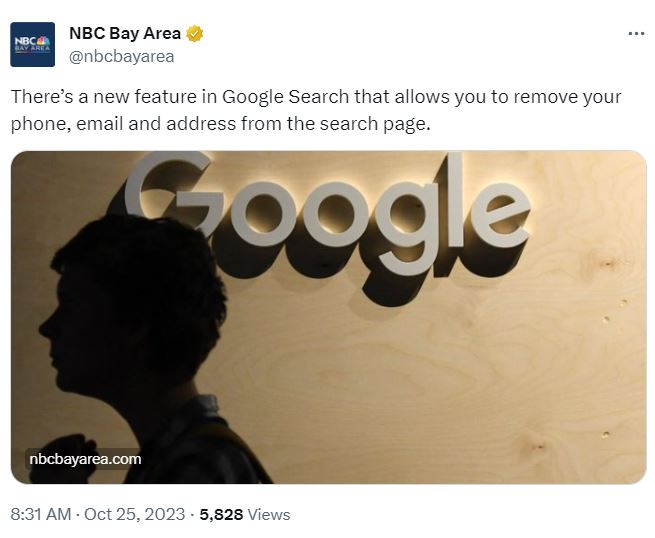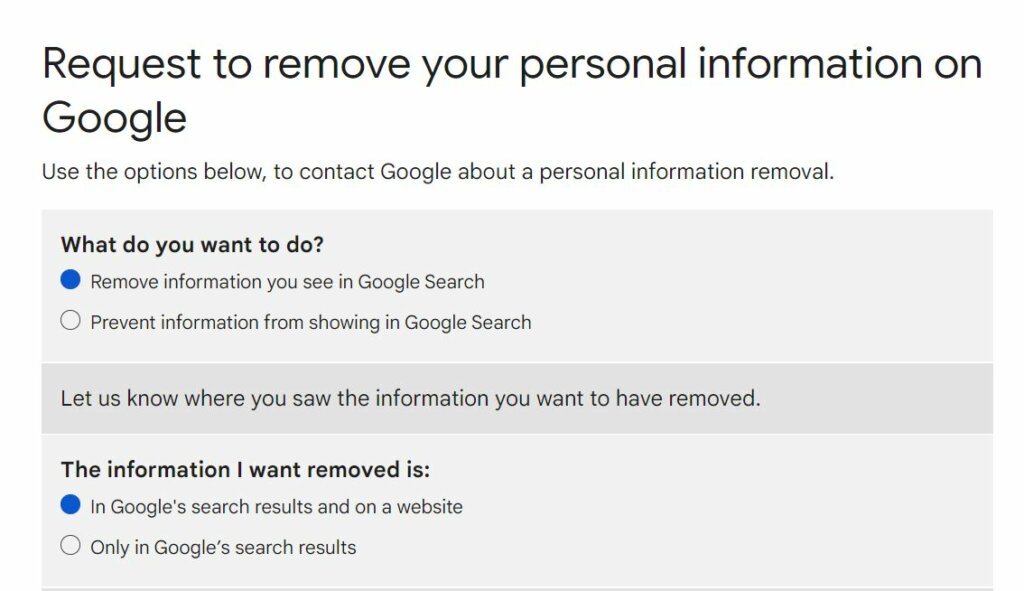
The problem with search engines is that cybercriminals get information from them too. (Image by Shutterstock)
A little bit of privacy: Removing personal information from search engines
|
Getting your Trinity Audio player ready... |
- Search engine results tend to showcase more personal information these days.
- Cybercriminals can use the information to launch social engineering attacks.
- Google Search allows users to remove personal information from search engines.
Everybody wants to protect their personal information today. Yet, everyone keeps sharing their personal information when prompted. This includes signing up for new products and services, installing new apps or even setting up new accounts. In fact, the amount of information we give out to companies is often a lot more than we actually realize.
Despite this, everyone cries out whenever there is a data breach or cybersecurity incident that could expose personal data. Most users would normally blame the organization that has been compromised by cybercriminals for not doing enough to protect their information. Companies would then try their best to recover the data, but the damage is done already.
However, when personal information is available publicly on social media and such, where does privacy fit in? For example, most social media platforms would allow personal information to be displayed when an individual is searched on search engines. The only way to stop this from happening is by ensuring the settings of the social media account are set to not allow personal information to be shared in search engines.
Facebook, LinkedIn and other social media apps allow users to control what information they can share on search engines. Some users are fine with it but many are not opting to not allow search engines to display their personal social media accounts. Unfortunately, it is not just social media that displays personal information.
Today, a search of any individual in search engines like Google Search would not just result in individuals with similar names but also things like their place of work. For example, if a company mentions the employees’ names and roles, it can be easily accessible through a simple search on Google and such.

Did you know that you can remove personal information from Google Search?
Personal information risks
The problem with personal information on search engines is that the information is basically accessible to anyone today. Any search on an individual on a search engine today would result in information that includes social media accounts, place of work, personal blogs and such. For images, search results would display images of the individual in company profile, social media and even websites that have been tagged with the individual’s name.
And now with generative AI in search engines, the results are becoming even more accurate. With the right prompts, search results can provide much better details of an individual that is being looked up on the web.
Here is where the problem arises as well. Cybercriminals are able to do their research on victims and launch specific cyber attacks on them. These social engineering attacks are normally more accurate as cyber criminals would have all the necessary information needed.
For example, a search on an individual which resulted in the place he works, social media pages and his job scope would enable scammers and cybercriminals to customize a scam towards the victim.
In most cases, the cybercriminals are actually successful in scamming the victim. According to Verizon’s 2023 Data Breach Investigations Report, social engineering is a lucrative tactic for cybercriminals, especially given the rise of those techniques being used to impersonate enterprise employees for financial gain, an attack known as Business Email Compromise (BEC).
The report stated that the median amount stolen in BECs has increased over the last couple
of years to US$50,000, based on Internet Crime Complaint Center (IC3) data. With the growth of BEC, enterprises with distributed workforces face a challenge that takes on greater importance: creating and strictly enforcing human-centric security best practices.

Removing personal information from Google Search
Removing personal information from search engines
Fortunately, there are ways to reduce the amount of personal information that is available on search engines. For starters, users can opt to set their social media platforms to private or even pick the feature that ensures their profile is not available as a result in search engines.
Search engines like Google Search have also released a feature that allows users to scrub their personal information from being churned out as results during searches. In fact, this feature has been available for some time but many users are still not aware of it.
Google stated that its new policy expansion enables users to request removals of additional types of information when they find it in Search results, including personal contact information like a phone number, email address, or physical address. The policy also allows for the removal of additional information that may pose a risk for identity theft, such as confidential log-in credentials, when it appears in Search results.
“The availability of personal contact information online can be jarring — and it can be used in harmful ways, including for unwanted direct contact or even physical harm. And people have given us feedback that they would like the ability to remove this type of information from Search in some cases.
When we receive removal requests, we will evaluate all content on the web page to ensure that we’re not limiting the availability of other information that is broadly useful, for instance in news articles. We’ll also evaluate if the content appears as part of the public record on the sites of government or official sources. In such cases, we won’t make removals.
It’s important to remember that removing content from Google Search won’t remove it from the internet, which is why you may wish to contact the hosting site directly if you’re comfortable doing so,” explained Michelle Chang, Global Policy Lead for Search at Google.

How to remove personal information from Google Search.
A shared responsibility
As Google has clearly pointed out, the information that it will remove will merely be from appearing on its search results. The information could still be publicly accessible through other means.
As such, users should be responsible and in control of the information that they choose to share online. While social media remains the most common source of personal information, users still dictate how much of their life they choose to share on these platforms.
For businesses, sharing corporate information is a necessity but they could also do it in a way that does not risk the privacy of their employees and executives.
At the end of the day, personal information on the internet has to be a shared responsibility. While search engines like Google can help with managing the search results, users themselves still need to be careful of the information they decide to allow to be publicly available.
READ MORE
- Safer Automation: How Sophic and Firmus Succeeded in Malaysia with MDEC’s Support
- Privilege granted, not gained: Intelligent authorization for enhanced infrastructure productivity
- Low-Code produces the Proof-of-Possibilities
- New Wearables Enable Staff to Work Faster and Safer
- Experts weigh in on Oracle’s departure from adland






